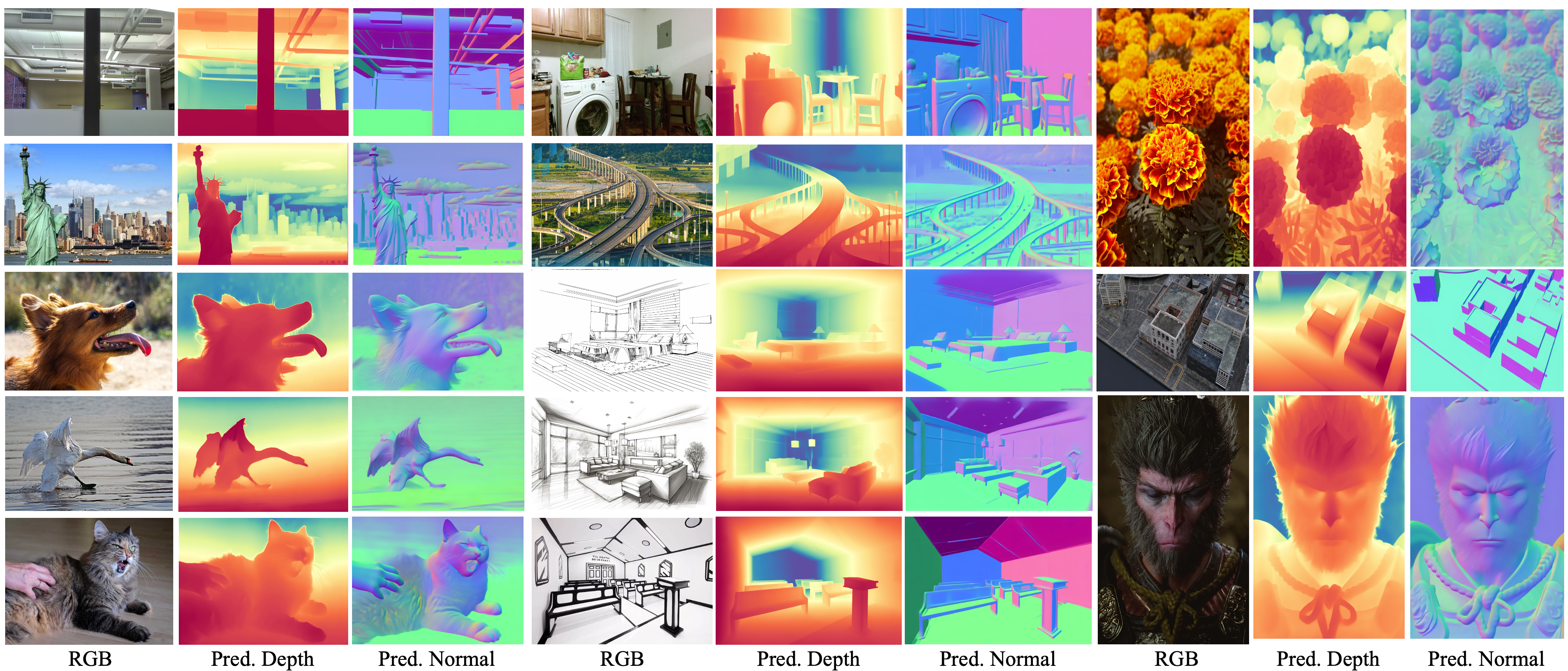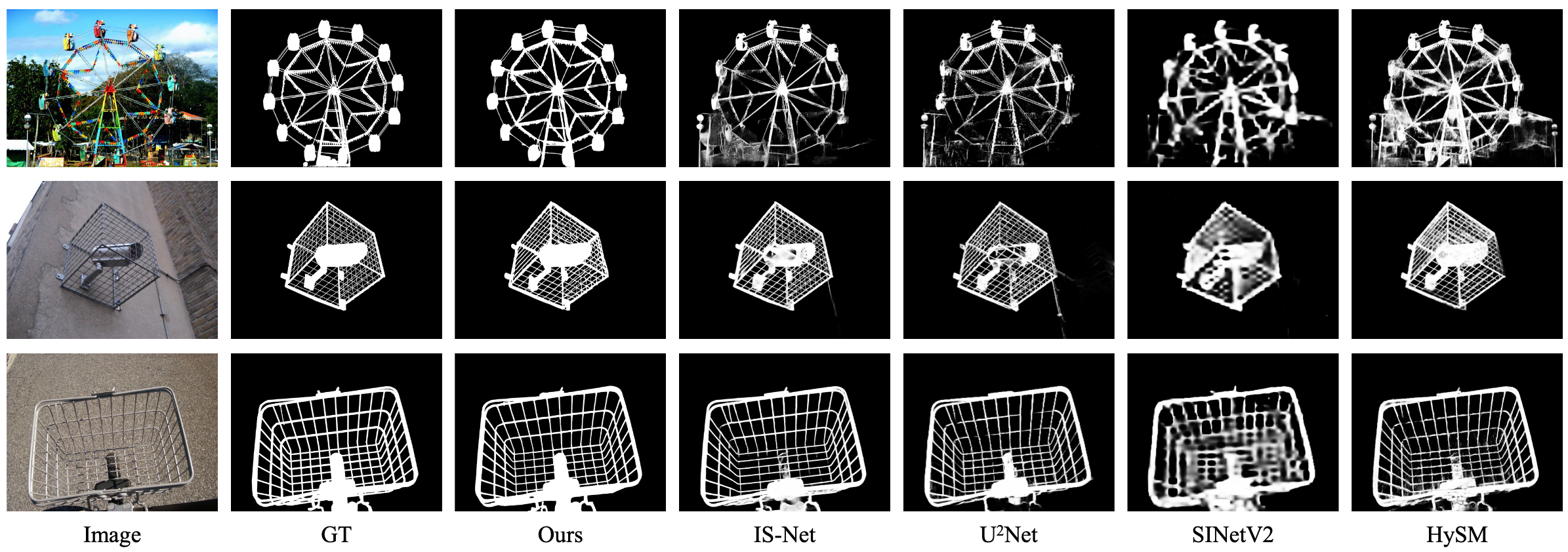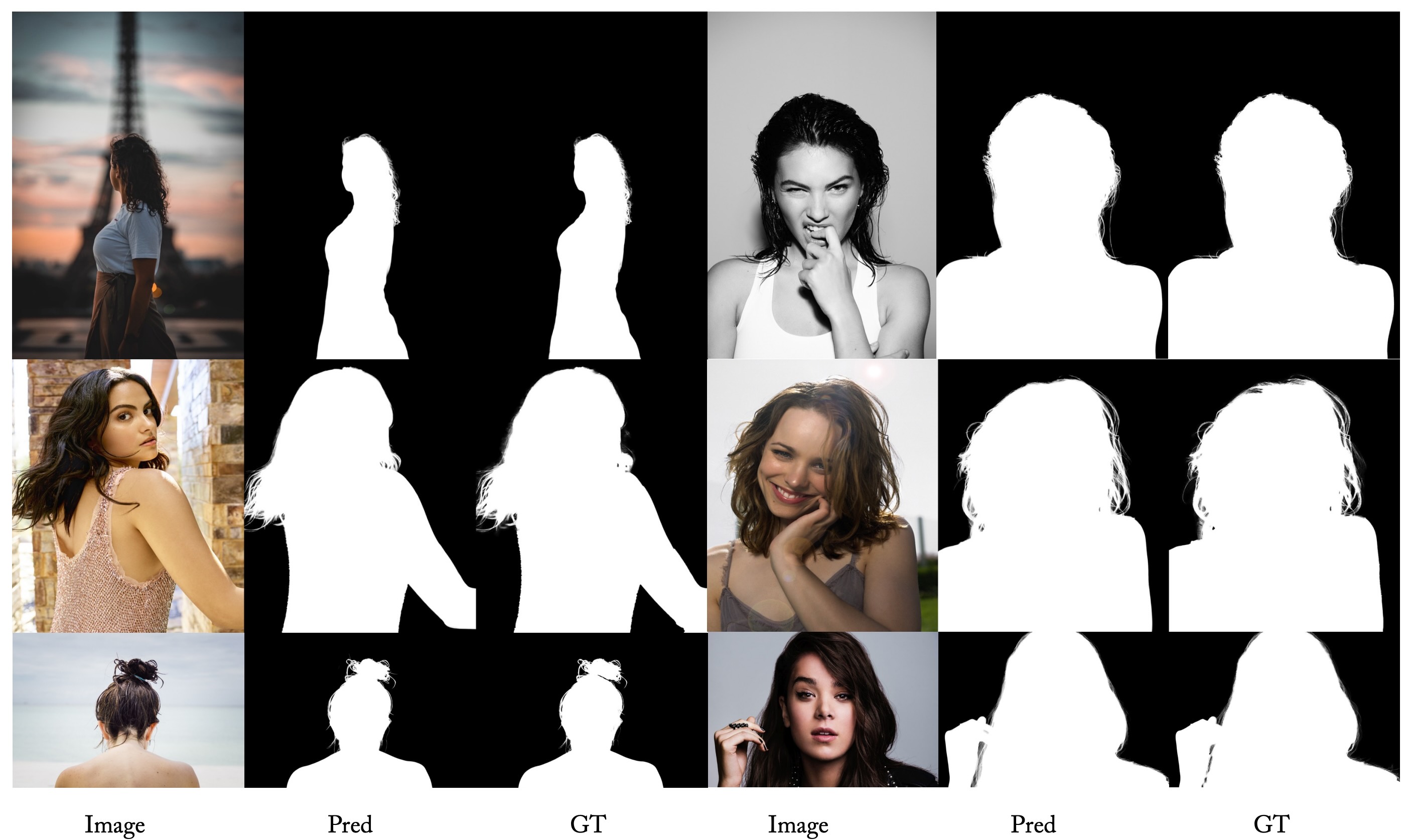Former Title: "Diffusion Models Trained with Large Data Are Transferable Visual Models"
Guangkai Xu,
Yongtao Ge,
Mingyu Liu,
Chengxiang Fan,
Kangyang Xie,
Zhiyue Zhao,
Hao Chen,
Chunhua Shen,
Zhejiang University
- 2024.10.25 Update GenPercept Huggingface App demo.
- 2024.10.24 Release latest training and inference code, which is armed with the accelerate library and based on Marigold.
- 2024.10.24 Release arXiv v3 paper. We reorganize the structure of the paper and offer more detailed analysis.
- 2024.4.30: Release checkpoint weights of surface normal and dichotomous image segmentation.
- 2024.4.7: Add HuggingFace App demo.
- 2024.4.6: Release inference code and depth checkpoint weight of GenPercept in the GitHub repo.
- 2024.3.15: Release arXiv v2 paper, with supplementary material.
- 2024.3.10: Release arXiv v1 paper.
- Space-Huggingface demo: https://huggingface.co/spaces/guangkaixu/GenPercept.
- Models-all (including ablation study): https://huggingface.co/guangkaixu/genpercept-exps.
- Models-main-paper: https://huggingface.co/guangkaixu/genpercept-models.
- Models-depth: https://huggingface.co/guangkaixu/genpercept-depth.
- Models-normal: https://huggingface.co/guangkaixu/genpercept-normal.
- Models-dis: https://huggingface.co/guangkaixu/genpercept-dis.
- Models-matting: https://huggingface.co/guangkaixu/genpercept-matting.
- Models-seg: https://huggingface.co/guangkaixu/genpercept-seg.
- Models-disparity: https://huggingface.co/guangkaixu/genpercept-disparity.
- Models-disparity-dpt-head: https://huggingface.co/guangkaixu/genpercept-disparity-dpt-head.
- Datasets-input demo: https://huggingface.co/datasets/guangkaixu/genpercept-input-demo.
- Datasets-evaluation data: https://huggingface.co/datasets/guangkaixu/genpercept_datasets_eval.
- Datasets-evaluation results: https://huggingface.co/datasets/guangkaixu/genpercept-exps-eval.
conda create -n genpercept python=3.10
conda activate genpercept
pip install -r requirements.txt
pip install -e .Download the stable-diffusion-2-1 and our trained models from HuggingFace and put the checkpoints under ./pretrained_weights/ and ./weights/, respectively. You can download them with the script script/download_sd21.sh and script/download_weights.sh, or download the weights of depth, normal, Dichotomous Image Segmentation, matting, segmentation, disparity, disparity_dpt_head seperately.
Then, place images in the ./input/ dictionary. We offer demo images in Huggingface, and you can also download with the script script/download_sample_data.sh. Then, run inference with scripts as below.
# Depth
source script/infer/main_paper/inference_genpercept_depth.sh
# Normal
source script/infer/main_paper/inference_genpercept_normal.sh
# Dis
source script/infer/main_paper/inference_genpercept_dis.sh
# Matting
source script/infer/main_paper/inference_genpercept_matting.sh
# Seg
source script/infer/main_paper/inference_genpercept_seg.sh
# Disparity
source script/infer/main_paper/inference_genpercept_disparity.sh
# Disparity_dpt_head
source script/infer/main_paper/inference_genpercept_disparity_dpt_head.shIf you would like to change the input folder path, unet path, and output path, input these parameters like:
# Assign a values
input_rgb_dir=...
unet=...
output_dir=...
# Take depth as example
source script/infer/main_paper/inference_genpercept_depth.sh $input_rgb_dir $unet $output_dirFor a general inference script, please see script/infer/inference_general.sh in detail.
Thanks to our one-step perception paradigm, the inference process runs much faster. (Around 0.4s for each image on an A800 GPU card.)
TODO
NOTE: We implement the training with the accelerate library, but find a worse training accuracy with multi gpus compared to one gpu, with the same training effective_batch_size and max_iter. Your assistance in resolving this issue would be greatly appreciated. Thank you very much!
Datasets: TODO
Place training datasets unser datasets/
Download the stable-diffusion-2-1 from HuggingFace and put the checkpoints under ./pretrained_weights/. You can also download with the script script/download_sd21.sh.
The reproduction training scripts in arxiv v3 paper is released in script/, whose configs are stored in config/. Models with max_train_batch_size > 2 are trained on an H100 and max_train_batch_size <= 2 on an RTX 4090. Run the train script:
# Take depth training of main paper as an example
source script/train_sd21_main_paper/sd21_train_accelerate_genpercept_1card_ensure_depth_bs8_per_accu_pixel_mse_ssi_grad_loss.sh- Download evaluation datasets and place them in
datasets_eval. - Download our trained models of main paper and ablation study in Section 3 of arxiv v3 paper, and place them in
weights/genpercept-exps.
The evaluation scripts are stored in script/eval_sd21.
# Take "ensemble1 + step1" as an example
source script/eval_sd21/eval_ensemble1_step1/0_infer_eval_all.sh- Marigold: Repurposing Diffusion-Based Image Generators for Monocular Depth Estimation. arXiv, GitHub.
- GeoWizard: Unleashing the Diffusion Priors for 3D Geometry Estimation from a Single Image. arXiv, GitHub.
- FrozenRecon: Pose-free 3D Scene Reconstruction with Frozen Depth Models. arXiv, GitHub.
For non-commercial academic use, this project is licensed under the 2-clause BSD License. For commercial use, please contact Chunhua Shen.
@article{xu2024diffusion,
title={What Matters When Repurposing Diffusion Models for General Dense Perception Tasks?},
author={Xu, Guangkai and Ge, Yongtao and Liu, Mingyu and Fan, Chengxiang and Xie, Kangyang and Zhao, Zhiyue and Chen, Hao and Shen, Chunhua},
journal={arXiv preprint arXiv:2403.06090},
year={2024}
}




